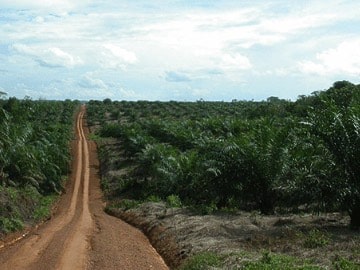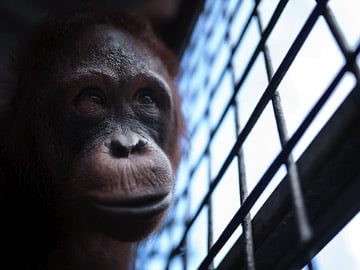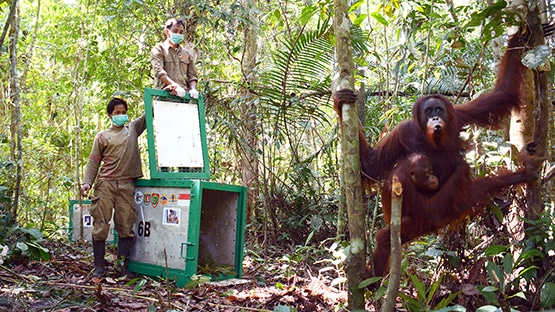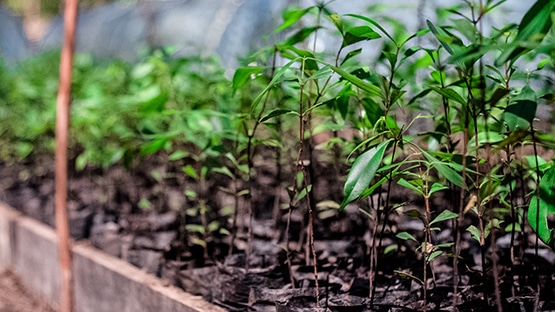Combating the Threat to Orangutans
The orangutan is endangered, and there are multiple causes for this threat. Foremost among them is the destruction of its habitat, primarily driven for decades by palm oil and paper&pulp production. Additionally, illegal wildlife trade further decimates their population. Since orangutans reproduce only every six to eight years, every killed or trafficked individual has a long-term impact on the population. We confront all these challenges to ensure the survival of orangutans.
Rainforest destruction
At least 30% of Borneo’s forests have been destroyed in the past 40 years, primarily for the cultivation of palm oil. However, not only that, but natural resources such as coal and gold are also mined, valuable tropical hardwoods are harvested from the forests, and large-scale food projects have been and continue to be undertaken to feed Indonesia’s 274 million inhabitants. For example, in the 1990s in Mawas, a mega-rice project resulted in the clearing and drainage of peat swamp rainforest covering approximately 70,000 hectares.




Palmoil
It is the most widely used plant oil in the world. It is cost-effective, flavorless, heat-stable, and has a long shelf life. Palm oil is very efficient crop and therefore found in every second supermarket product: in food, cosmetics, cleaning agents, candles, and pet food. However, despite all these advantages, the fruit of the oil palm has a massive drawback: the destruction of tropical rainforests, especially in the main cultivating countries of Indonesia and Malaysia. In Indonesia alone, oil palms now cover an area ten times larger (at least 14 million hectares) than in 1990. The victims are orangutans and thousands of other animals and plants that have lost their habitat.
Illegal wildlife trade and poaching
It’s a billion-dollar business. The illegal trade in protected animal and plant products ranks fourth worldwide in organized crime. Orangutans are also among the victims. The adorable babies are coveted as pets. Adult animals are exploited in amusement parks to amuse tourists. And as a result of human-animal conflicts, animals are still being killed.


Taking Action: BOS Deutschland’s Commitment to Orangutan Survival
BOS Deutschland works every day to secure the survival of the orangutans. To achieve this, we confront all the challenges and related issues head-on. We protect untouched habitats, actively engage in the palm oil issue, rescue victims of illegal wildlife trade, and much more.
Make a donation for the orangutans
Make a one-time donation
Orangutans need our help! With your donation for the orangutans you accompany and support an orangutan on its journey until its release into the wild.
Make a donation for the orangutans
Make a one-time donation
Orangutans need our help! With your donation for the orangutans you accompany and support an orangutan on its journey until its release into the wild.
There are achievements we can only reach together

Where do the newly released orangutans call home?
Join us in our release forests: Kehje Sewen (East Kalimantan), Bukit Batikap, and Bukit Baka Bukit Raya (both in Central Kalimantan).

Restoring the forest
In Mawas, a vast peat swamp rainforest was drained and destroyed in the nineties. Here, we are rehydrating the moor and reforesting it. In Sabah, we are transforming oil palm plantations into a wildlife corridor.